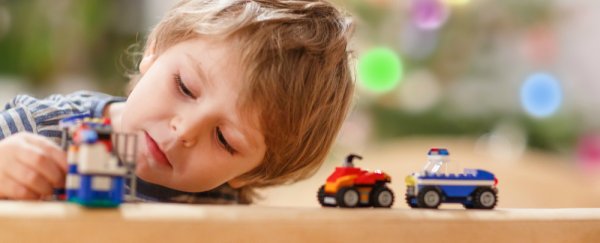Right now, in order to assess whether a patient has autism spectrum disorder or not, a doctor will monitor their behavioural patterns and social skills. Not only is this time-consuming and intrusive, it's also not the most accurate method of diagnosis, and generally children aren't diagnosed until around four years old.
But a new, small study has found biomarkers in the saliva of children that could be used to test for the disorder through a simple test. And it could revolutionise the way we diagnose and even treat the condition.
Researchers from Clarkson University and the State University of New York, both in the US, found the biomarkers after analysing the saliva of six children with autism, and six children without the condition, all aged between six and 16.
They used mass spectrometry, a chemistry technique that identifies chemicals present in a sample, to examine the protein levels in the participants' saliva, and see if there were any differences.
"We found nine proteins that were significantly elevated in the saliva of the people with autism and three that were lower or even absent," one of the lead researchers, Alisa G. Woods, who works at both Clarkson University and the State University of New York, said in a press release. "This is the first study to identify these changes in saliva, which is a relatively easy biofluid to obtain for clinical use or research."
The research, which has been published in the journal Autism Research, is obviously in its very early stages. But it paves the way for further research on these saliva proteins, and also into ways we may be able to identify children who have autism more easily, and also earlier, in future.
"We have found some interesting proteins that are different from children with autism compared with controls, and I think the next stage would be to increase the pool of samples to confirm those findings," said lead author, Armand Gatien Ngounou Wetie, in the release.
This isn't the first time researchers have looked into biological ways to test for autism. In 2010, a separate group of researchers from the US came up with an MRI-based test that could monitor the brain activity of children and assess whether they had the condition in less than 10 minutes, with a 94 percent success rate. And in 2013, another group developed a similar test to help speed up the process. Just like the saliva test, both of these are a long way from being used in clinics.
But if a test does make it through trials to become a diagnosis option, it will be the first biological test for autism. And although many children already live happily and healthily with autism, being able to identify which children have autism at an earlier age will help parents work with them and provide any necessary behavioural interventions before they start school.
